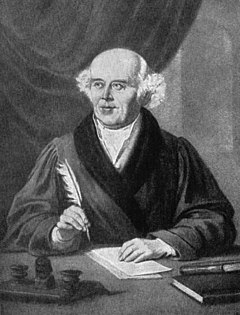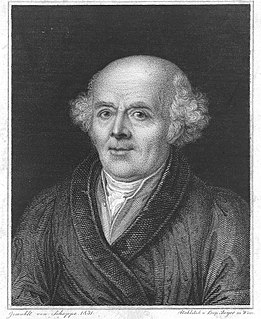Clairvoyance is the alleged ability to gain information about an object, person, location, or physical event through extrasensory perception. Any person who is claimed to have such ability is said accordingly to be a clairvoyant.

Franz Friedrich Anton Mesmer was a German doctor with an interest in astronomy who theorised that there was a natural energy transference that occurred between all animated and inanimate objects that he called animal magnetism, sometimes later referred to as mesmerism. The theory attracted a wide following between about 1780 and 1850, and continued to have some influence until the end of the century. In 1843 the Scottish doctor James Braid proposed the term hypnosis for a technique derived from animal magnetism; today this is the usual meaning of mesmerism.

The Society for Psychical Research (SPR) is a nonprofit organisation in the United Kingdom. Its stated purpose is to understand events and abilities commonly described as psychic or paranormal. It describes itself as the "first society to conduct organised scholarly research into human experiences that challenge contemporary scientific models." It does not, however, since its inception in 1882, hold any corporate opinions: SPR members assert a variety of beliefs with regard to the nature of the phenomena studied.
Psychometry, also known as token-object reading, or psychoscopy, is a form of extrasensory perception characterized by the claimed ability to make relevant associations from an object of unknown history by making physical contact with that object. Supporters assert that an object may have an energy field that transfers knowledge regarding that object's history.
Richard Baerwald (1867–1929) was a German academic psychologist, in Berlin. Towards the end of his life he became interested in parapsychology and occultism. He edited the Zeitschrift für Kritischen Okkultismus from 1926 to 1928.
Hans Bender was a German lecturer on the subject of parapsychology, who was also responsible for establishing the parapsychological institute Institut für Grenzgebiete der Psychologie und Psychohygiene in Freiburg. For many years his pipe smoking, contemplative figure was synonymous with German parapsychology. He was an investigator of 'unusual human experience', e.g. poltergeists and clairvoyants. One of his most famous cases was the Rosenheim Poltergeist.

The Schlachter-Bibel is a German translation of the Bible by Franz Eugen Schlachter, first translated from the Greek and Hebrew text of the Bible in 1905. Schlachter was a preacher of the Evangelische Gesellschaft in Bern, Switzerland influenced by the holiness movement.
Traugott Konstantin Oesterreich was a German religious psychologist and philosopher.
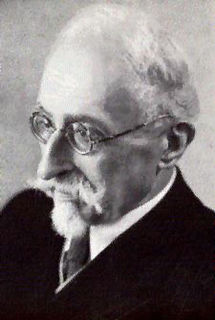
Maximilian Dessoir was a German philosopher, psychologist and theorist of aesthetics.
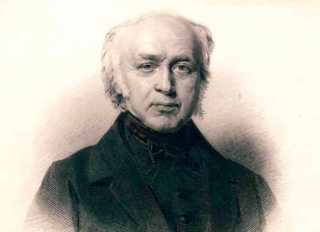
Clemens Maria Franz (Friedrich) Freiherr (Baron) von Bönninghausen was a lawyer, Dutch and Prussian civil servant, agriculturalist, botanist, physician and pioneer in the field of homeopathy.
The American Society for Psychical Research (ASPR) is an organisation dedicated to parapsychology based in New York City, where it maintains offices and a library. It is open to interested members of the public to join, and has a website. It also publishes the quarterly Journal of the American Society for Psychical Research.

Johannes Hans Balzli, more commonly known as Johannes Balzli, was an Austrian/German author, newspaper editor, Theosophist and Armanist, most notable for his biography of Guido von List, entitled, "Guido v. List: Der Wiederentdecker Uralter Arischer Weisheit - Sein Leben und sein Schaffen" .

James Hewat McKenzie (1869–1929) was a British parapsychologist, and the founder of the British College of Psychic Science. McKenzie was born in Edinburgh, Scotland, on 11 November 1869 and died on 29 August 1929, in London.
Waldemar von Wasielewski was a German writer who specialized in the occult, Goethe research, and the history of music.

Johann Baptist Mayrhofer, was an Austrian poet and librettist. He is best known for his close friendship with the composer Franz Schubert.
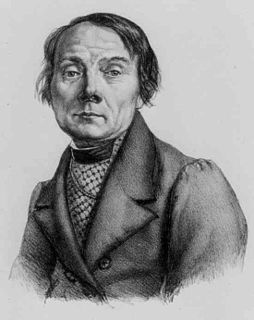
Joseph Ennemoser was a South Tyrolean physician and stubborn late proponent of Franz Mesmer's theories of animal magnetism. He became known to English readers through Mary Howitt's translation of his History of Magic.
The International Institute for Psychical Research (IIPR) was a short-lived psychical organization based in London that was formed in 1934. It was criticized by scientists for its spiritualist leanings and non-scientific approach to the subject.
Karl Bittel was a German left-wing Historian and Journalist.
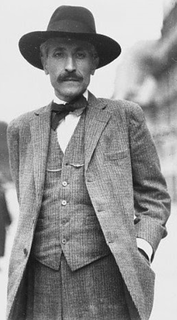
René Sudre was a French journalist, parapsychologist and writer.






